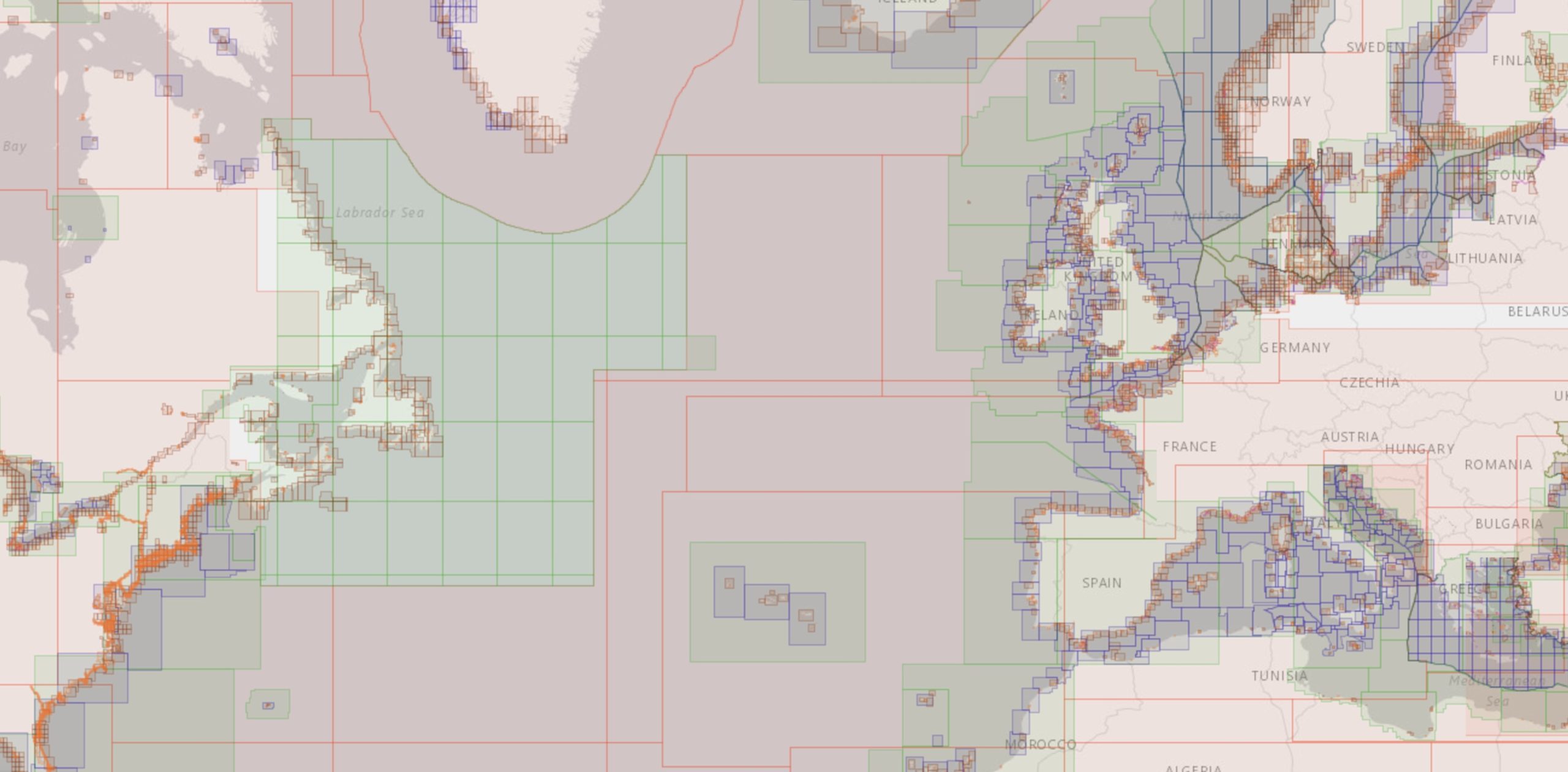Smart & Adaptive Solutions
At Hartis, we enable effective Marine Spatial Planning (MSP) by combining access to authoritative geospatial data with expert analysis and strategic modelling. Our goal is to help create sustainable marine spatial plans that integrate ecological priorities with economic activities—ensuring a resilient and inclusive future.
1. Data Collection and Analysis
We collect, curate, and deliver comprehensive spatial datasets essential for informed marine planning.
Sea Uses and Anthropogenic Activities
We map all coastal and offshore activities including aquaculture, offshore wind energy, hydrocarbons extraction, fisheries, shipping, cables and pipelines, ports, marinas and recreational activities.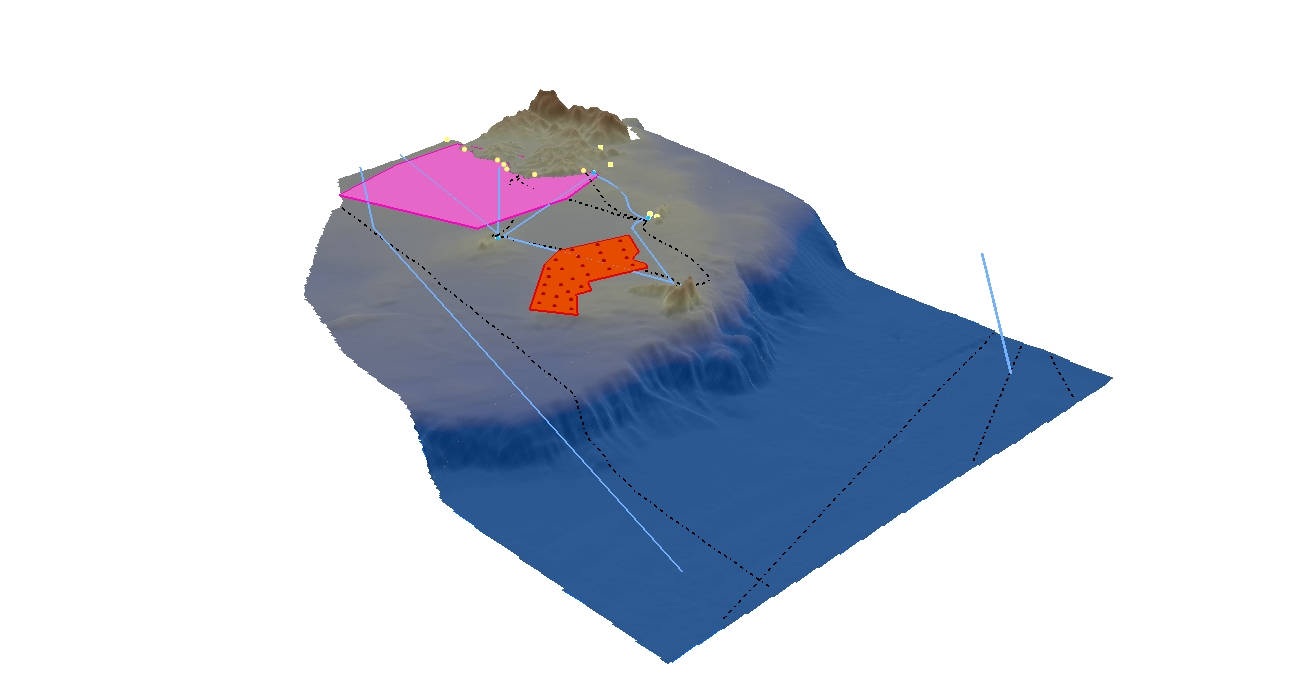
Ecological Components
Our datasets cover habitats, fish, marine mammals, and bird populations, enabling ecosystem-based planning.
High-Resolution Bathymetry
We provide detailed coastal bathymetry and derived topographic attributes (slope, ruggedness, aspect and bathymetric position indexes) to support habitat mapping and site assessment.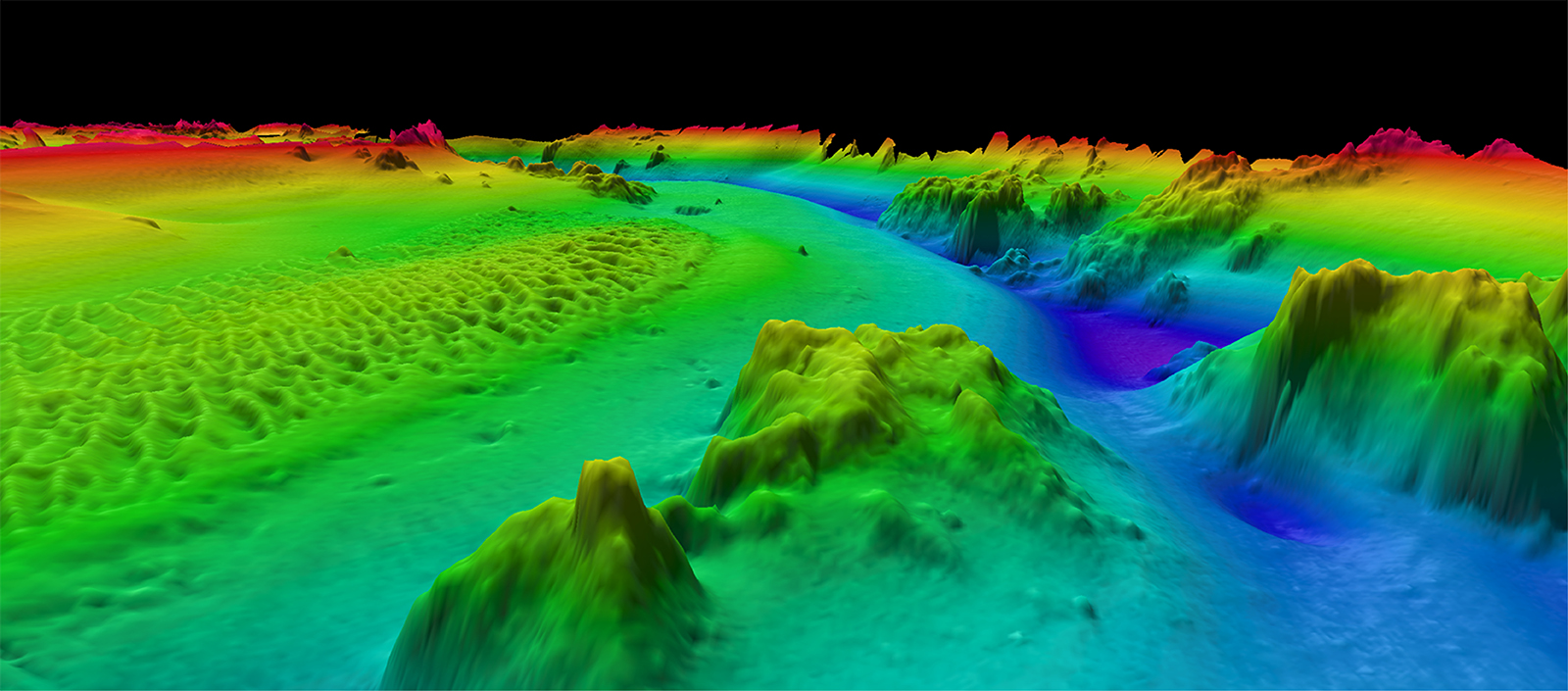
Data Quality Assurance
We evaluate data sources for accuracy, consistency, and uncertainty, ensuring decision-making is based on reliable, high-confidence information.2. Mapping and Visualization
Our services combine cutting-edge geostatistics and GIS technologies to visualize marine environments and activities.
Detailed Marine Use Maps
We produce high-resolution maps illustrating sea uses, and different ecosystem components.
Web and Participatory GIS Platforms
We engage local stakeholders through participatory mapping, integrating scientific data with traditional and community knowledge for richer insights. Web-based GIS platforms also serve as our key enabler for data dissemination, and enhanced accessibility
Interactive Spatial Analysis
Our mapping tools allow users to explore spatial distributions, identify critical zones, and assess interactions between sectors.
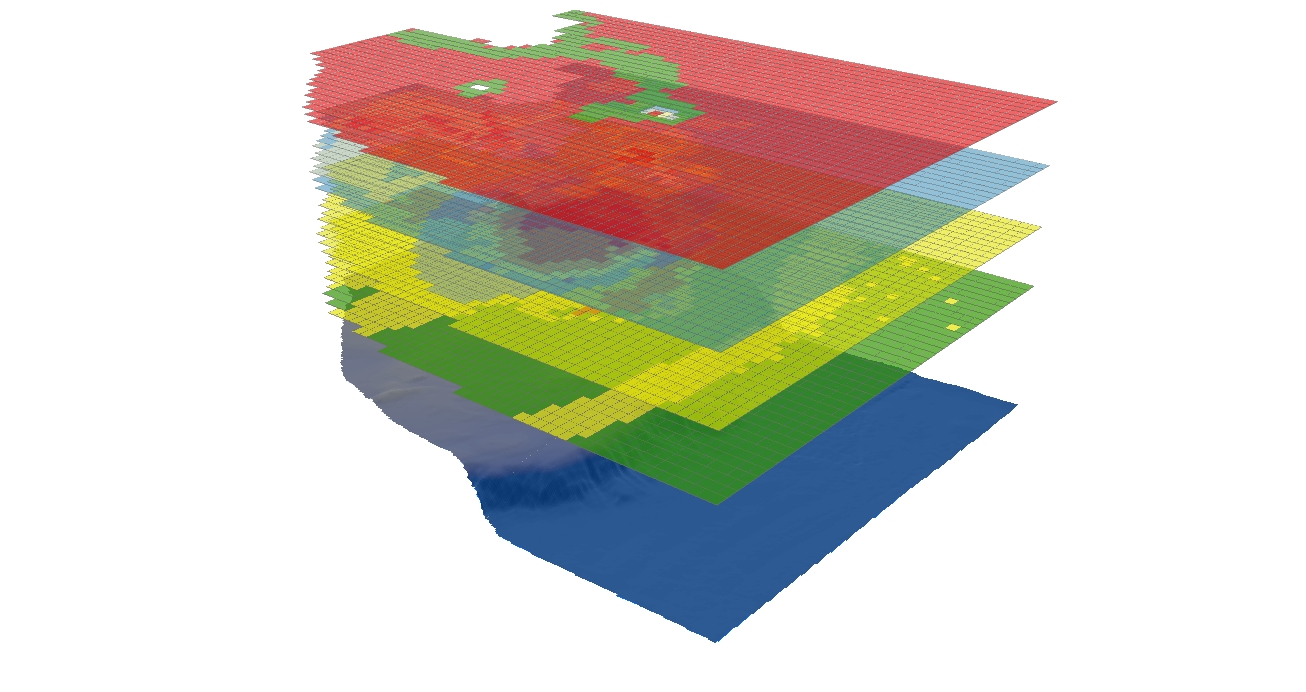
3. Assessment of Current Conditions
Understanding the baseline conditions is key to effective planning. We assess existing marine uses, current environmental status, and socio-economic conditions and interactions to establish baseline scenarios.
3a. Synergies and Conflicts Quantification
Synergies
Opportunities where activities can co-exist beneficially (e.g., offshore wind farms and aquaculture).
Conflicts
Potential clashes where activities compete for space and resources (e.g., shipping lanes crossing fishing areas).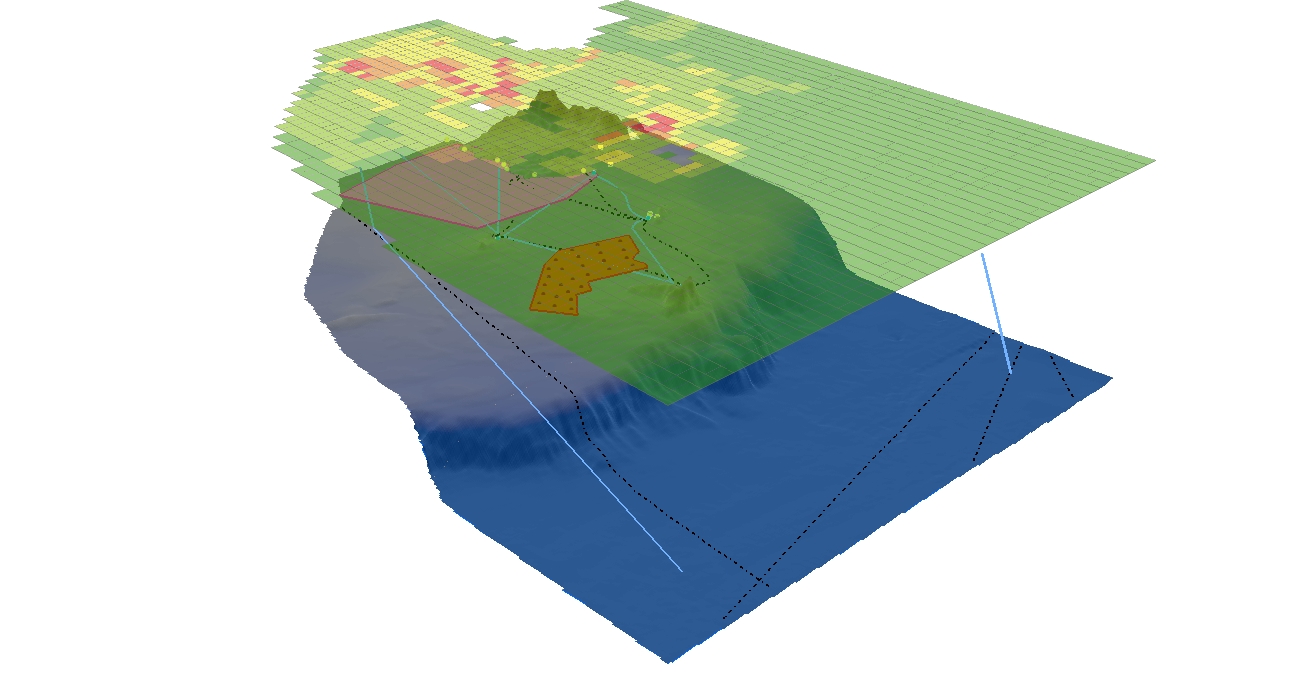
3b. Spatial Decision Support
Our analyses effectively balance the spatial and temporal relations among human uses occurring in different marine regions, to further support effective management strategies, and prioritization schemes of sustainable uses.4. Environmental and Cumulative Impact Assessments
We offer a comprehensive suite of services designed to support effective maritime spatial planning and sustainable coastal development:
Cumulative Impact Assessment (CIA)
We analyze the combined effects of multiple human activities on marine and coastal ecosystems, providing insights into how various pressures interact and accumulate over time.
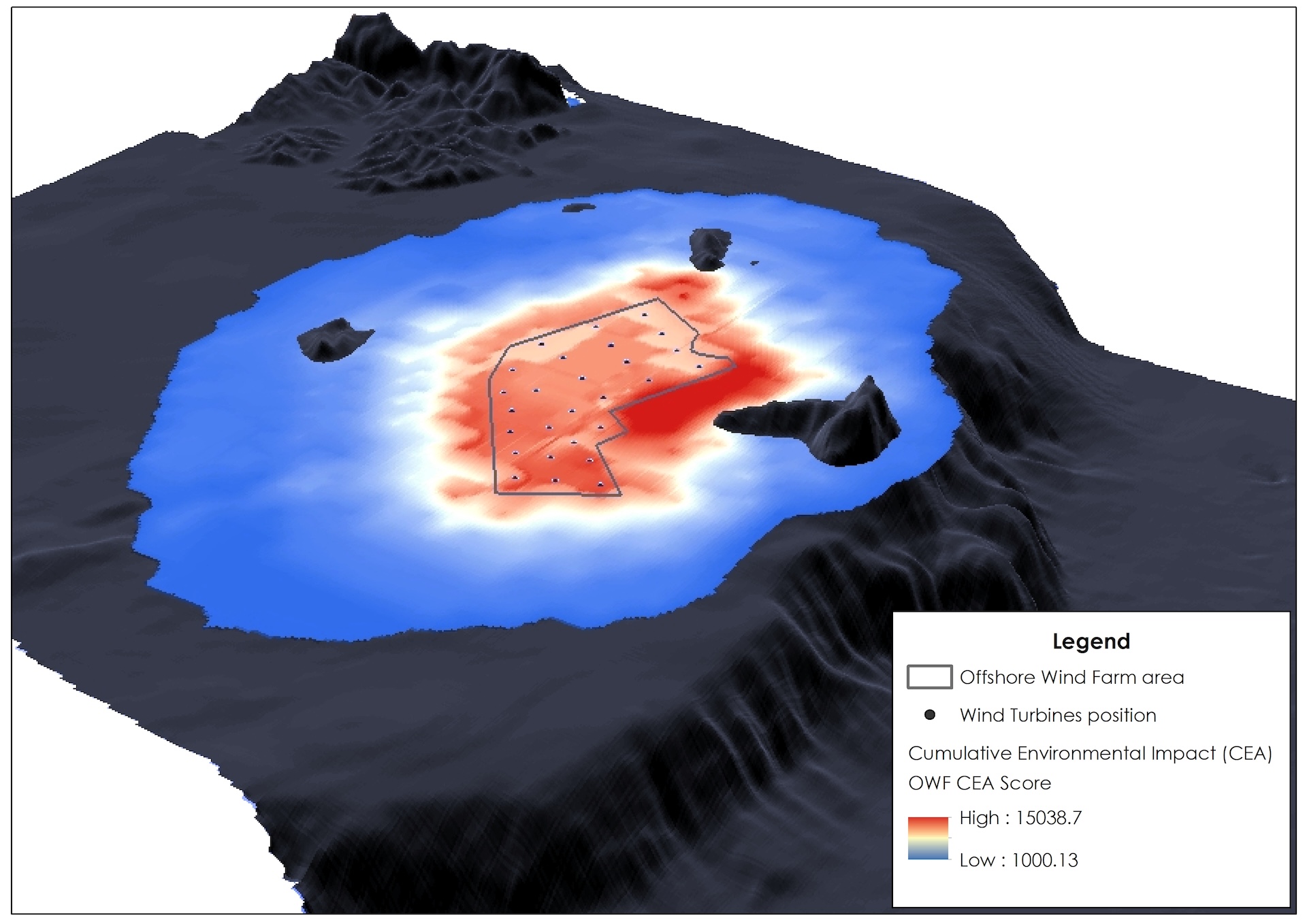
Environmental Impact Assessment (EIA)
Our evaluations focus on project-specific impacts, identifying potential environmental consequences and recommending mitigation measures and monitoring strategies to ensure responsible development.
Stakeholder-Driven Modelling
We actively involve expert groups and local stakeholders in co-designing assessments, ensuring that both scientific expertise and local knowledge are integrated into the decision-making process.
Sensitivity Mapping
By identifying ecologically sensitive and high-risk areas, we guide spatial management and protection efforts, helping to prioritize conservation actions and inform policy development.
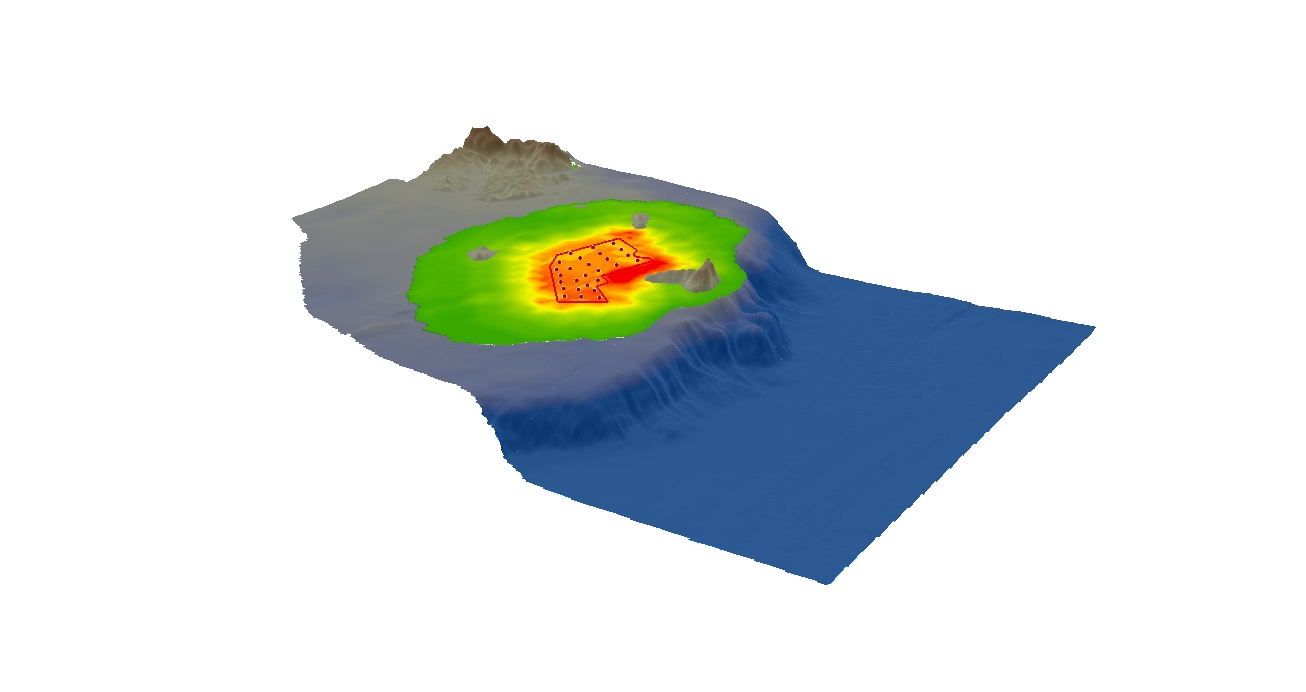
5. Scenario Development and Spatial-Temporal Analysis
Planning for the future requires modelling multiple possibilities.
Alternative Management Scenarios
We develop and evaluate different MSP scenarios based on user needs, ecological priorities, and spatial-temporal dynamics.
Site-Prospecting Optimization
Our tools simulate and forecast potential outcomes under various development scenarios, helping to optimize site selection and support adaptive, data-driven decision-making.
Climate Change Impact Scenarios
We incorporate projections of sea-level rise, habitat shifts, and climate impacts to future-proof marine plans.
Resilience Planning and Impact-based modelling
Strategies are designed to enhance ecosystem resilience and ensure sustainable use across changing conditions.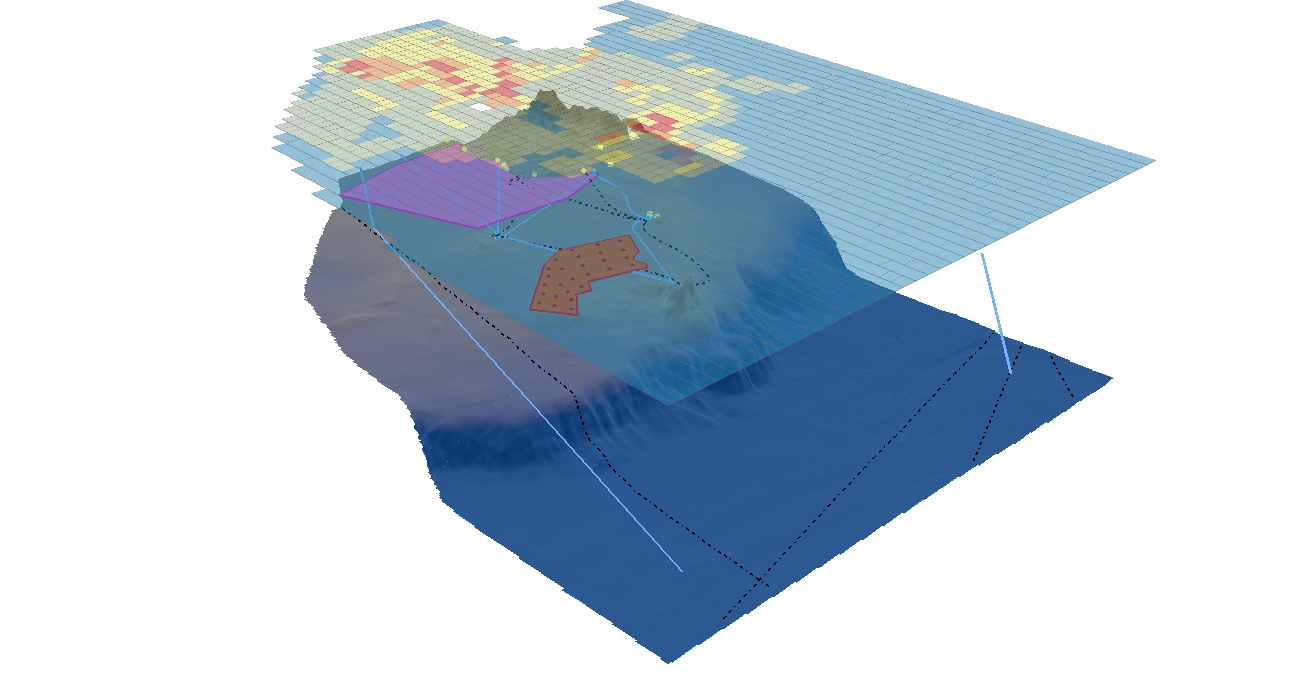
6. Stakeholder Engagement and Participatory Planning
Recognizing that sustainable Marine Spatial Planning (MSP) must be inclusive, we facilitate structured, transparent, and meaningful participation at every stage of the planning process.
Multi-Stakeholder Consultations
We organize consultation rounds with local communities, industry representatives, authorities, NGOs, and scientific experts to gather input, validate priorities, and build consensus.
Co-Design Workshops
Collaborative sessions allow stakeholders to shape planning scenarios, identify key issues, and co-develop spatial strategies using accessible tools and shared data.
Participatory GIS (P-GIS)
We integrate local knowledge through participatory mapping activities, combining scientific datasets with stakeholder insights to enrich spatial understanding.
Online Engagement Tools
Web-based platforms, surveys, and interactive maps enable broader participation, ensuring transparency and feedback even beyond physical meetings.
Conflict Resolution and Mediation
Our team supports dialogue and structured negotiation processes where competing interests or spatial conflicts arise.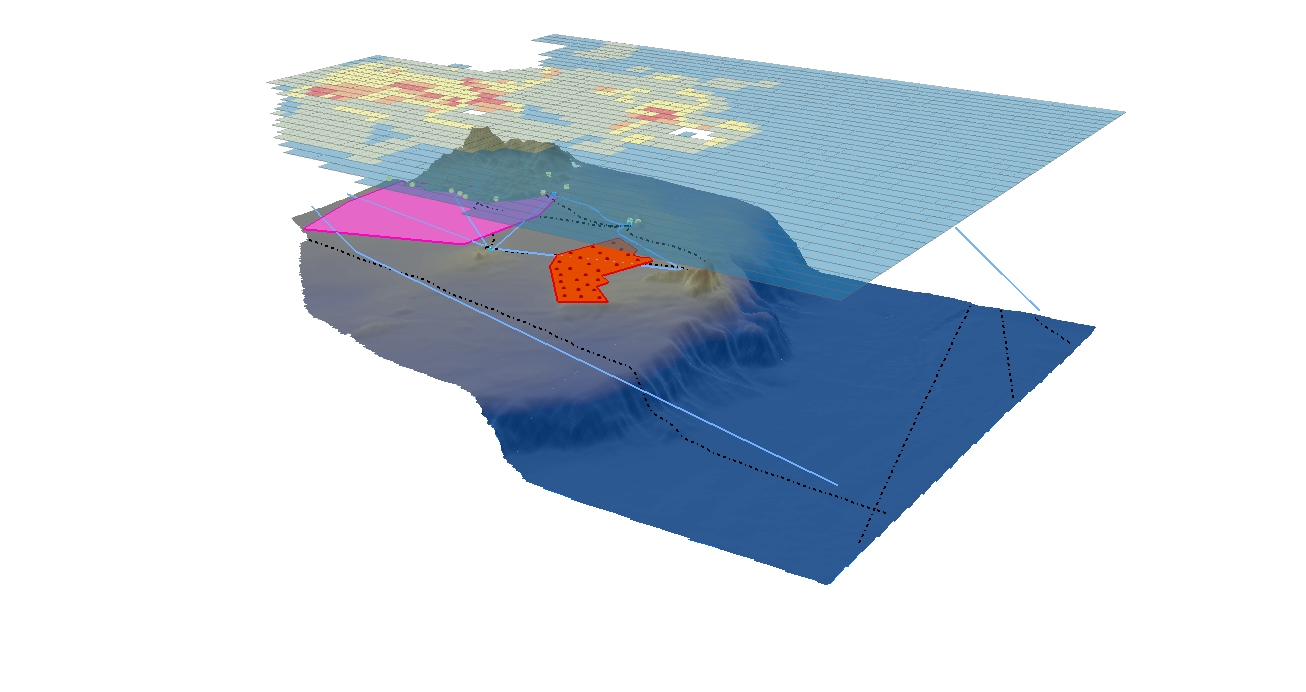
Ready to Chart the Future?
We support governments, communities, and industries in developing data-driven, sustainable marine spatial plans tailored to their needs. Contact us today to explore how we can help you unlock the full potential of your marine and coastal spaces.

Data Collection and Analysis
We collect, curate, and deliver comprehensive spatial datasets essential for informed marine planning.
We map activities such as aquaculture, offshore wind energy, hydrocarbons extraction, fisheries, shipping, cables and pipelines, ports, and marinas.
Our datasets cover habitats, fish stocks, marine mammals, and seabird populations, enabling ecosystem-based planning.
We provide detailed coastal bathymetry and derived topographic attributes (slope, ruggedness, aspect) to support habitat mapping and site assessment.
We evaluate data sources for accuracy, consistency, and uncertainty, ensuring decision-making is based on reliable, high-confidence information.
Mapping and Visualization
Our services combine cutting-edge geostatistics and GIS technologies to visualize marine environments and activities.
Assessment of Current Conditions
Baseline Scenario Analysis
We assess existing marine uses, environmental status, and socio-economic conditions to establish reference scenarios.
Synergies and Conflicts Identification
- Synergies: Opportunities where activities can co-exist beneficially (e.g., offshore wind farms and aquaculture).
-
Conflicts: Potential clashes where activities compete for space and resources (e.g., shipping lanes crossing fishing areas).
Spatial Decision Support


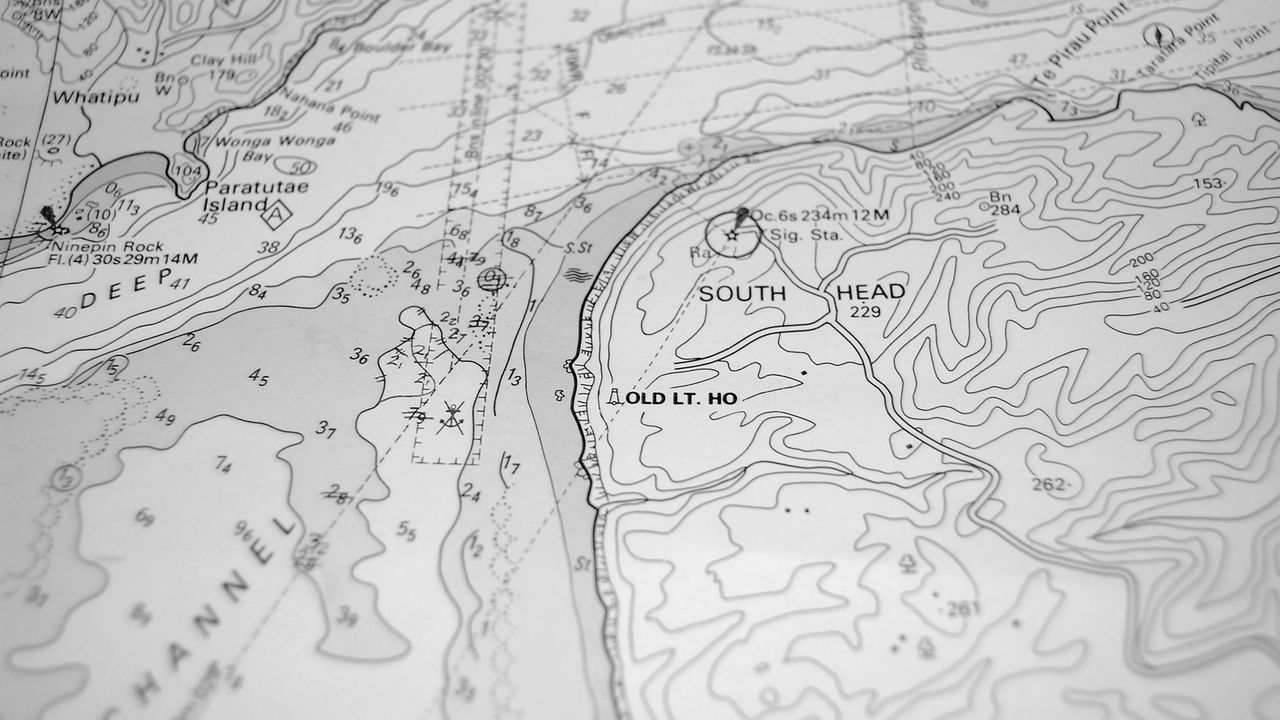
Environmental and Cumulative Impact Assessments
Cumulative Impact Assessment (CIA)
Environmental Impact Assessment (EIA)
Stakeholder-Driven Modelling
Sensitivity Mapping


Scenario Development and Spatial-Temporal Analysis
Planning for the future requires modelling multiple possibilities
Alternative Management Scenarios
Predictive Modelling
Climate Change Integration
Resilience Planning
